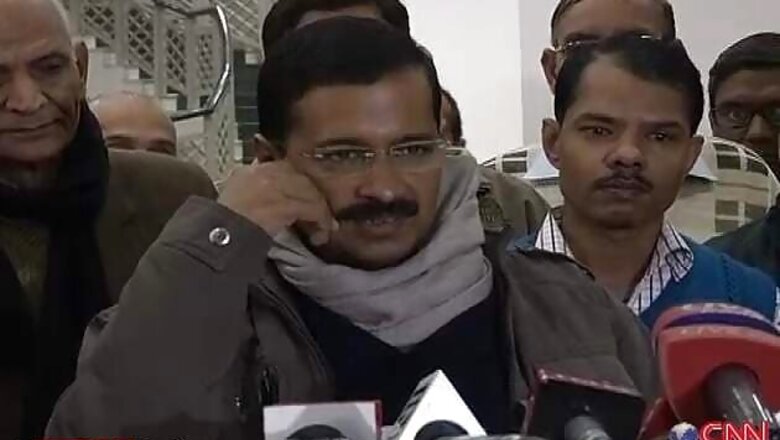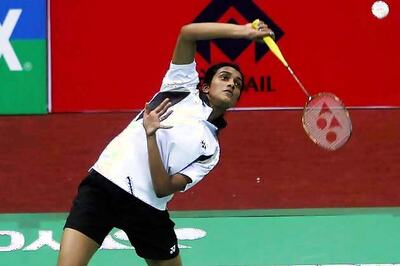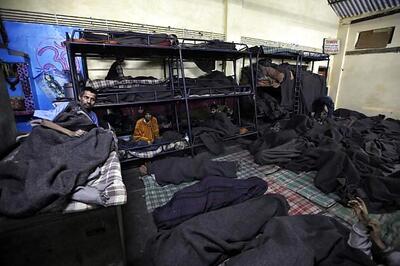
views
New Delhi: From a rally that nearly ended in a stampede, to a rebellious lawmaker and a minister openly dueling police over drug gangs, the honeymoon could be short-lived for the Aam Aadmi Party (AAP), the anti-corruption party that shook up politics last month.
The AAP enjoyed a heady few weeks after its leader Arvind Kejriwal pulled off a political surprise by becoming Delhi chief minister in December elections.
He eschewed the usual displays of power beloved of many of VIPs, such as expensive official cars that routinely ran red lights, and promised voters cheap water and power.
With his party aiming to contest a general election due by May, both the ruling Congress party and the main opposition Bharatiya Janata Party (BJP) worry that Kejriwal could eat into their traditional voter support in the cities.
Kejriwal's party is still a force as it attracts supporters across the nation, ranging from intellectuals to journalists and rights activists. But a sinking feeling of inexperienced, out-of-their-depth politicians is increasingly manifesting itself.
The first sign of trouble came last weekend when Kejriwal had to flee a town hall meeting where out-of-control crowds threatened to stampede. He abandoned plans for more meetings that had been touted as his version of "people power".
The incident provided ammunition to critics, who accused Kejriwal's government of being undisciplined.
"Now they are out of activism...they need to understand what is governance," said Kiran Bedi, a former IPS officer and anti-graft activist who is not an AAP member.
Next, Delhi law minister Somnath Bharti led a night raid on what he described as the homes of African prostitute gangs and drug dealers, provoking criticism of vigilantism.
A senior police officer warned the politician against "crossing the limit".
With a base in Delhi, the AAP's anti-corruption platform, coupled with promises of free water and cheaper electricity, resonated with voters. But its foray into wider national issues has been shaky, and it has gained an image of a populist party with a few realistic economic policies.
Kejriwal faced criticism within his party after he barred foreign supermarkets from setting up shop, dealing a blow to Prime Minister Manmohan Singh's efforts to open India's $500 billion retail industry to foreign investors.
"(The party) is in danger of being branded like other political parties - resorting to cheap and populist measures," said CR Gopinath, the founder of a low-cost airline and a member of the AAP.
One AAP lawmaker accused Kejriwal of behaving like a dictator, surrounding himself with a small circle of advisors.
For the AAP, many of the controversies are just hiccups for a new party gaining support across India. In many cities tens of thousands of voters fed up with the patronage and perceived graft of mainstream parties are signing up.
So it is early days yet, say supporters.
"It's good that people have many expectations from us," said Yogendra Yadav, a senior party leader. "It keeps us on our toes. However, along with that, it also makes sense to keep a reasonable sense of time when it comes to getting things done."



















Comments
0 comment